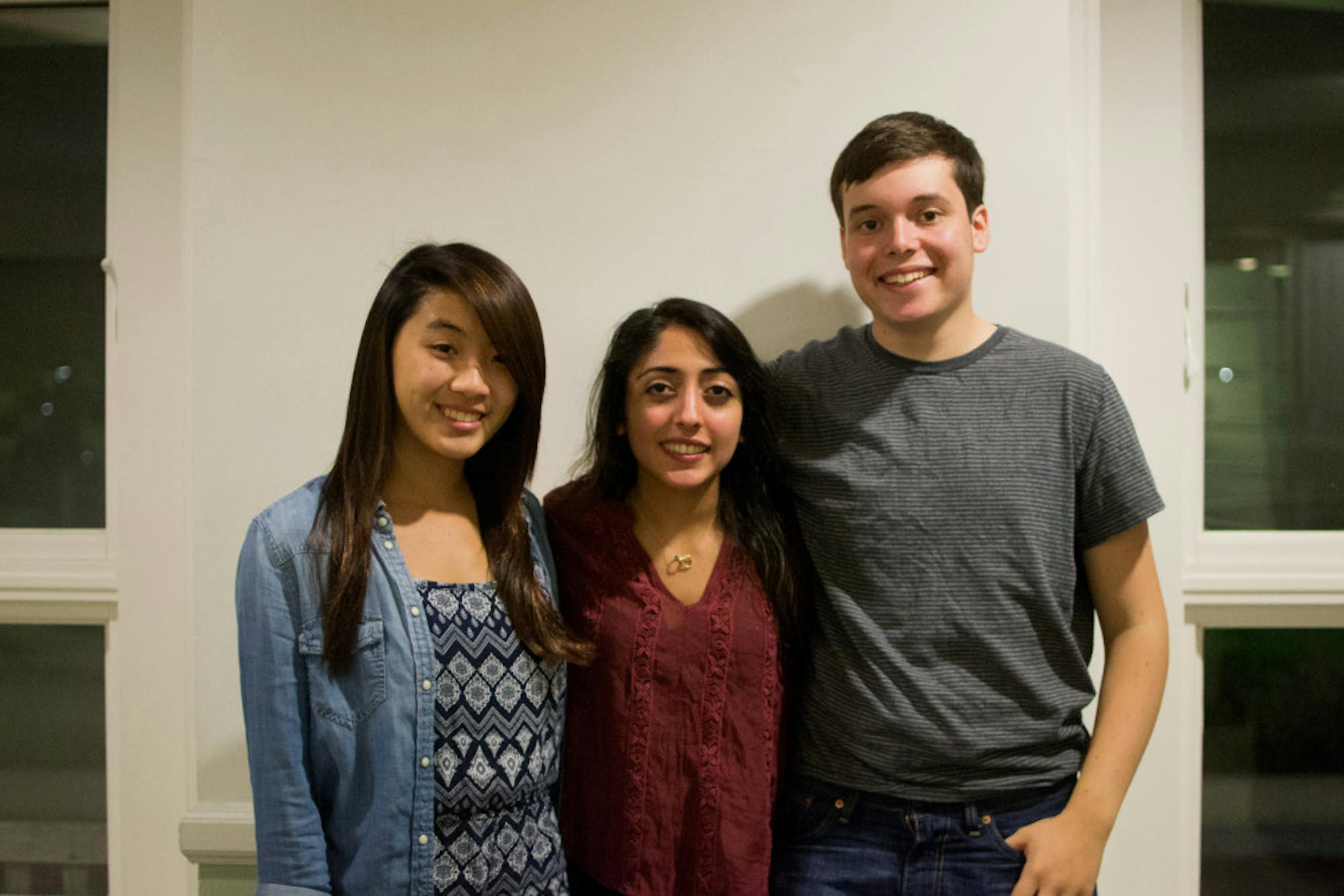Debating International Relations and Exploring Current Trends (DIRECT), a new student group devoted to international relations (IR), was formed this fall in order to explore global current events and facilitate discussion using international relations theories.
The group, started by sophomores Jacob Hafey, Somya Banwari and Elaine Wang, held its first general interest meeting last week. The three DIRECT founders explained that a shared passion for international relations brought them together in spite of their different upbringings and backgrounds.
According to Hafey, DIRECT will address fundamental questions about the current state of the world, new theories emerging in the fields of international relations and the ways in which those theories help to explain foreign affairs.
He explained that DIRECT will explore current international relations theorists and theories that are not covered in "PS 61: Introduction to International Relations," a mandatory introductory class for IR majors. Hafey said that the introductory IR class only deals with 20th-century theories such as realism, liberalism and constructivism and does not draw enough from contemporary schools of thought.
As DIRECT looks to establish itself on campus, Banwari hopes to form an all-encompassing group that is accessible to students.
“I hope to gain a community for international relations majors -- and people just interested in politics as whole -- to come and discuss how they feel about global affairs, to talk about what’s happening and let out their opinions on it regardless of their background, regardless of whether they are interested in [the] military or China," Banwari said. "It’s for everyone to come together and just talk."
She explained that the group aims to be different from other international relations-related groups on campus, such as Alliance Linking Leaders in Education and the Services (ALLIES), which addresses the military-civilian component of international relations, and Sino-U.S. Relations Group Engagement (SURGE), which focuses on relations between the United States and China.
“The reason we formed DIRECT was because we felt that on campus, there are a number of clubs that address different subsets of the IR community,” Banwari said. “There is no club that encompasses the entirety of the IR community; there isn’t a non-partisan, combination group, and we want DIRECT to be that forum.”
With so many IR groups already on campus, Wang said it will be difficult for DIRECT to break into the established circle. According to Wang, it will take time and numerous events for the group to differentiate itself as a general discussion forum to students who are already in certain international relations niches.
Wang added that although the international relations program is popular at Tufts, the fact that there is no department dedicated to international relations also contributed to the formation of DIRECT.
“IR is such a big major on campus, yet we only have these small subject focus groups and not a huge community we could come to," she said. "We want to serve as sort of a home base for students."
DIRECT, which is not yet recognized by Tufts Community Union (TCU) Senate, aims to draw from the Tufts community of professors and other IR groups to facilitate group discussions, according to Hafey.
“We are really hoping to work with other IR groups that do specialize, because if we are talking about specific theories such as Chimerica — a theory of the symbiotic relations between the U.S. and China — then maybe we want to talk to and bring in a group like SURGE because they discuss Sino-U.S. relations all the time," he said.
Wang explained that DIRECT is a platform to discuss not only the political aspect of IR, but also its cultural aspect.
“If again we are looking at Chimerica, maybe we can get CSA [Chinese Student Association] involved, or the Chinese House, and have them come and talk about their personal experiences for people, because I feel like a lot of times, politics involves such people who never had personal experience discussing issues," she said. "So we want to make it more personal and more real.”
Wang said she wants DIRECT to be a forum of open discussion between students and professors.
“Hopefully, we can make the IR community stronger and more closely knit,” Wang said. “I feel like since there isn’t an IR department, professors of the field are distant from the students. And we want to bridge that gap between students and professors.”
Discussion-based international relations group DIRECT founded this fall

The IR group DIRECT was co-founded by three Tufts sophomores. From left to right: Elaine Wang, Somya Banwari and Jacob Hafey





